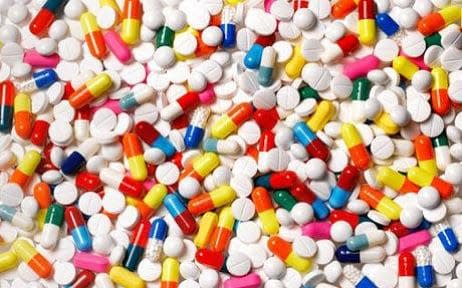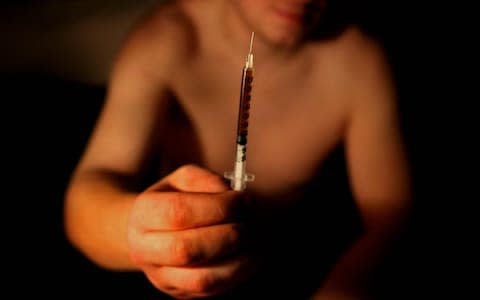Fingerprint test could tell if people took drugs or skipped medication

A fingerprint test developed by British scientists could tell if patients are skipping medication.
Forgetting or failing to take drugs can have serious consequences, particularly for people suffering from chronic conditions or those with mental health issues.
Non-adherence to prescribed medication is a major problem for the NHS, with some studies showing only 50 per cent of people take long-term drugs as instructed, at a cost of around £300 million in wasted medicine each year.
But until now it has been difficult for doctors to know if people are sticking to their prescriptions.
Now the University of Surrey has devised a state-of-the-art fingerprint test which can identify traces of drugs on human skin, even after someone has washed their hands. And it can ever tease out whether an individual has used the drug or shaken hands with someone who has handled it.
The initial tests were carried out on the drug heroin, but researchers say it could be used for conventional medication.
Dr Melanie Bailey from the University of Surrey said: “Our team here at the University of Surrey believes that the technology we are developing will make our communities safer and shorten the route for those who need help to beat their addictions.
“We also believe the technology has scope in other areas, such as confirming whether a patient is taking their medication.”
The team took fingerprints from people seeking treatment at drug rehabilitation clinics who had admitted taking heroin or cocaine during the previous 24 hours.
A fingerprint was collected from each finger of the right hand, and the participants were then asked to wash their hands thoroughly with soap and water and then wear nitrile gloves for a period of time before giving another set of fingerprints.
This same process was used to collect samples from 50 drug non-users.
The results found that the technology was able to identify traces of heroin on drug non-users in every scenario the researchers devised – whether someone directly touched the drug, handled it and then thoroughly washed their hands, or had come into contact with heroin via shaking someone else’s hand.

The team cross-referenced the information from the drug non-users with the volunteers who were being treated for drug dependency and found that extra chemicals were present in those who actually taken heroine - because the drug breaks down inside the body.
Chemicals such as morphine, noscapine and acetylcodeine were found in those who had used the drug, but not in those who had handled it.
Previously blood tests were needed to prove if someone had taken a drug, but the new results show that the same information can be gathered through a simple fingerprint.
Catia Costa, also from the University of Surrey said: “Our results have shown that this non-invasive and innovative technology is sensitive enough to identify class A drugs in several scenarios – even after people have washed their hands using varying methods.”
The team are hoping the same technology could be used to find out whether patients have taken prescription medication.
As well as the costs to the NHS in wasted medication, not taking drugs correctly also results in needless trips to the doctor or hospital admissions. There is also the danger that a doctor may up the dose after failing to see the desired effect from a drug.
A survey by pharmacy automation company Omnicell in 2015, found the majority of people simply forget to take medication, while a quarter do not want the unpleasant side effects and 20 per cent said they felt the drugs were unnecessary.
The research was published in The Journal of Analytical Toxicology.

 Yahoo News
Yahoo News 
